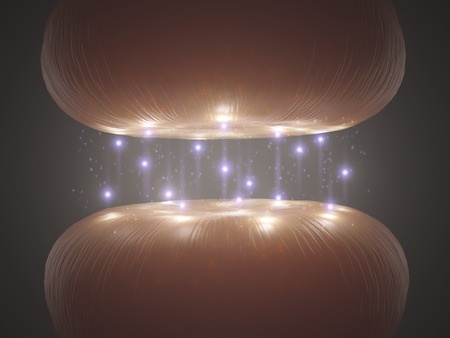Can Nutrition Really Affect Depression?
Depression is the result of brain chemistry gone awry—dopamine, serotonin, and/or other neurotransmitters levels that are out of balance, or a reduced sensitivity to these neurotransmitters. These chemical imbalances are thought to be the cause of ongoing feelings of sadness, lethargy, severe lack of motivation, the desire to shut out others, and so on.
While depression can be triggered by life events or brought on purely by other physiological issues, the brain chemistry component is at the heart of clinical depression.
According to the World Health Organization (WHO), depression is the leading cause of disability worldwide and a major contributor to humanity's overall burden of disease. In the West, we've dealt with depression in two ways: through therapy and counseling that can address underlying emotional problems, and increasingly through pharmaceuticals that alter brain chemistry to prevent or reduce feelings of depression.
Therapy can be very effective over the long-term, especially in establishing effective coping mechanisms to reduce the severity and duration of depressive episodes. Antidepressant medications can have more immediate effects, but these pharmaceuticals can have a range of side effects—dulled emotions, mental cloudiness, reduced sex drive, and even increases in suicidal thoughts—and overall they don't address the underlying cause(s) of depression.
As we start to better understand the physiology of mental health disorders, we're finding evidence that what we eat can have a huge influence on how we feel, not only physically but mentally, too. This information calls into question our model for treating depression and mental health in general.
How Digestion Can Influence Brain Chemistry and Depression
Digestion is a central aspect of all aspects of health but new research is suggesting it plays a larger role in  mood disorders than previously thought. The obvious way digestion affects mood is the ability to absorb the nutrients needed to make neurotransmitters (more on this below). Perhaps more interesting is the relationship between the microbes in our digestive tract and mood. This new area of focus called the microbiome- gut-brain axis was the focus of several new research reviews.
mood disorders than previously thought. The obvious way digestion affects mood is the ability to absorb the nutrients needed to make neurotransmitters (more on this below). Perhaps more interesting is the relationship between the microbes in our digestive tract and mood. This new area of focus called the microbiome- gut-brain axis was the focus of several new research reviews.
While a clear understanding of this concept has not been presented they have found that there is a connection between these bacteria and your central nervous system. There are a lot of direction to take this research. However the main point here is that the body is complex and we need to pay attention when our digestion is not right.
How Nutrition Affects Brain Chemistry
Looking more specifically at nutrition, the different macronutrients we ingest have a direct impact on how our brain and body make and balance neurotransmitters. For example, the proteins we eat are needed for neurotransmitter production. The amino acids tryptophan and tyrosine come from protein and are needed to make the neurotransmitters dopamine and serotonin. Inadequate protein intake can thus have a direct impact on neurotransmitter production and mood.
How much protein do you need to eat? To be healthy most people need about 0.7mg per kg of body weight. This equation excludes athletes. For vegans and vegetarians you have to ensure you are eating protein sources that have the essential amino acids (those which your body cannot make).
Specific vitamins and nutrients like folate, omega-3 fatty acids, and others have also been shown to correlate to varying risks of depression. Deficient levels of certain nutrients have been associated with higher risks for depression, while the right supplements can potentially be used to treat or prevent depression by re-balancing brain chemistry.
Just like our physical health, our mental health is hugely influenced by our nutrition and digestion, and learning to eat better is a side effect-free way to improve your mood and possibly even end your depression.
Always Consult with a Doctor Before Changing Your Diet
While the research showing nutrition's influence on depression is substantial, there is no single "anti-depression diet plan." Everyone's body, brain, and situation are different, and that calls for different approaches to diet and overall treatment. If you are suffering from depression, you should definitely speak with you medical provider. While not all medical providers are knowledgeable about diet their clinical understanding of your mood can help you navigate the best path forward.
To schedule an initial consultation and start developing a comprehensive understanding of your depression and your treatment options, please contact our office today.
















